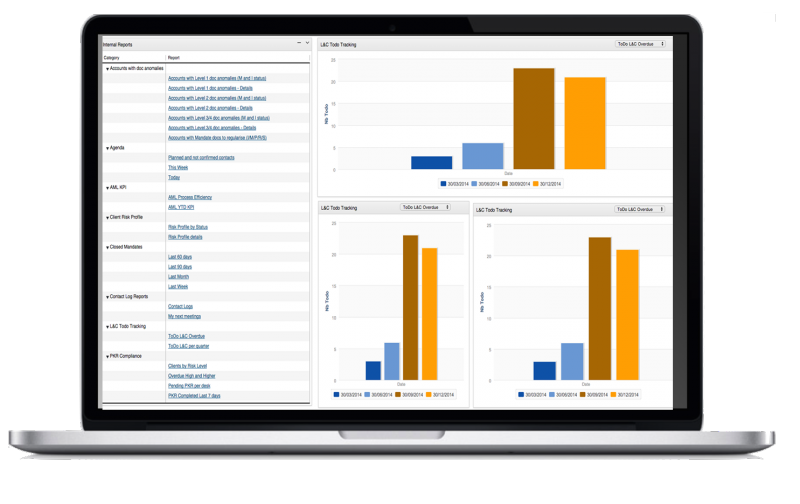Whitestein Technologies is proud to be a Platinum Sponsor to the annual...
You are here
Making better Decisions with Cognitive Software
A stated goal of Artificial Intelligence is to "provide augmented intelligence that will surpass humans in accuracy and insight or strength and agility.”[1] AI is rapidly becoming ubiquitous in multiple industries, with many focusing on the utility of machine learning techniques for complex information processing and analytics. Cognitive software is emerging within this space as computer-enabled decision and task support to assist information and knowledge workers, especially when handling complex cases that do not fully fit within a predefined box. Cognitive software enables employees to mine huge volumes of data and analytics, with natural language requests, and provides employees with a clean, coherent summary of relevant information that allows users to make more informed decisions, more efficiently, and with an audit trail.
Helps you think more clearl
At Whitestein, we’ve expanded the AI component of our core product, LSPS, and added a cognitive infrastructure—not to replace human intelligence but to enhance people’s ability to make rapid, correct and informed decisions. Because people can generally only focus on the assessment of between five and seven factors at once, LSPS organizes and presents information in a dashboard format that is relevant, timely and clear. The software enables dialogues that allow staff the flexibility, within predefined rules, to explore all possible angles of their decisions, and to seek out additional factors when those seem relevant. This enables employees to make better informed decisions that ultimately incorporate more factors, and provides them with the means to justify those decisions if necessary.
There are several scenarios in which cognitive software is easily utilized. For example, imagine a loan provider is considering whether to approve a loan where the customer’s background does not fit the normal loan applicant. However, after entering all the required application information into the system, the standard software in use tells the loan clerk to approve the loan, and she follows this recommendation. The customer then defaults a year later, and when management asks the employee to explain, the only justification is, “the software said so.”
Let’s replay the scenario with the more specialized cognitive software. Your software recommends that you approve the loan. Realizing that, based on human experience, this case doesn’t fit precisely ‘in the box’, you are able to ask the cognitive software in natural language for additional information, data correlations, and even probabilities based on information that may be very specific to this applicant’s situation. Perhaps the conclusion reached is that the customer presents too much risk, or even the loan is approved after further assessment and a default still occurs, a much more comprehensive trace of reasoning is available to justify the choice.
Make better supply chain decisions with what-if questions
Supply chain management is also a field in which Whitestein customers have successfully benefited from the flexibility of cognitive software. In the ideal world, visibility in supply chain management begins at the supplier’s supplier and extends to the end customer, which is simply a massive task, and not one that lends itself to manual processes. Further, comprehensively monitoring the large number of variables in supply chain management is highly complex on a good day. Factors such as environmental conditions, current events, natural disasters, just to name a few, can impact availability of an item, the ability to transport an item, the cost of an item. The list of risk factors is long.
Whitestein’s cognitive software enables a company to monitor all of these factors behind the scenes, providing in a user-friendly manner recommendations, answers to additional questions, live solutions to new conditions. All the while, this information is recorded and auditable, and the software continues to intelligently learn as it absorbs more data. Small decisions can have large implications - the butterfly effect. LSPS can provide warnings of unintended consequences if such a decision is made.
Ultimately the cognitive power of LSPS provides companies and their employees with the means to harness vast amounts of data and analysis in an efficient, coherent manner, enabling employees to make the best possible decisions in the most timely manner possible.
Encourage creative thinking with cognitive softwar
Cognitive software doesn’t require people to have blind faith in its recommendations. Instead, it allows them to ask questions and gives in-depth answers, about the immediate question and also about the larger possible consequences of a decision. As a result, people do less tracking of rules (which computers do better) and more creative speculation and planning (which humans do better). And the business benefits from their innovative thinking.
See what your people can do when they get a little help from Whitestein’s LSPS cognitive capabilities. For more information on how you can provide your employees with the ability to make more informed decisions, contact us for a demo.
[1] AI vs. Cognitive Computing: How do YOU decide?, Cognitive Computing Consortium Blog, 9 June, 2016
